In 1964, Jean-Claude Decaux invented advertising street furniture. Ever since, JCDecaux—now the global industry leader—has been the only international player focused exclusively on outdoor advertising, developing 3 areas of business: Street Furniture, Transport advertising and Billboard advertising.
Key figures
Business model
A French family company created in 1964 by Jean-Claude Decaux, inventor of a new business in urban services and a unique business model which enables its financing through brand communication, JCDecaux aims to serve the community and be the responsible and sustainable media in cities and transport and retail places by providing services and resources to citizens, passengers and partners in France and in over 80 countries.
JCDecaux is the world leader in outdoor advertising and offers three outdoor advertising activities from the local to the global level:
- Street Furniture which relates to advertising in the public domain on bus shelters, free-standing information panels (MUPI®) of 2 sqm or 8 sqm, kiosks, multi-service columns and in the private domain notably in the “Retail“ segment (shopping centres and supermarkets)
- Transport which focuses on advertising in land transport networks and airports
- Billboard Advertising which concerns the marketing of billboards, neon-light billboards and advertising wraps.
JCDecaux, the responsible media
A VIRTUOUS MODEL INVENTED BY JEAN-CLAUDE DECAUX IN 1964
Sustainable and innovative furniture and services financed by brands and their advertisement

At the heart of the service economy : the design, installation and upkeep of useful products and services for citizens and for sustainable and smart cities and mobility services
This model has many advantages, particularly in the services it can offer:
- it offers citizens and users products and services at no cost to local budgets and taxpayers
- it helps improve quality of life in cities and mobility places by developing more services for citizens and users (accessibility, soft mobility, connectivity, etc.) making the city more sustainable as part of an engaged environmental approach
- it is part of the functional economy: JCDecaux provides high quality furniture designed to last, which remains most of the time its property, is maintained by JCDecaux teams and can be renovated and reused
- it allows local authorities to have their own information and communication media in the public space and thus to inform citizens and promote the regions
- it contributes to the beautification of the environment in which the furniture is installed thanks to aesthetic concepts, often designed by renowned designers and architects, and innovative high added-value solutions.
JCDecaux’s business model is historically virtuous and responsible. More than ever, its service dimension benefits society as a whole and contributes to the transformation of our society towards a low-carbon transition.
Advertising on street furniture:
- allows the financing of services provided by street furniture and the development of new solutions that benefit citizens
- contributes to the development of local economic players and strengthens the reach of brands.
- raises public awareness of best practices for the environmental and social transition.
The company’s main activities are developing these products and services, their installation and maintenance over the term of the contracts, and the selling of advertising space to international, national and local advertisers.
JCDecaux’s innovative business model, combined with the strength of its values, make it not only a dynamic company, focused on continuous improvement, but also an international showcase of French know-how.
Overview
Profit & Loss
| In million Euros, except %, Adjusted figures | 2023 | 2022 | 2021 | 2020 | 2019 |
|---|---|---|---|---|---|
| Revenue | 3,570 | 3,317 | 2,745 | 2,312 | 3,890 |
| Operating margin | 663 | 603 | 422 | 142 | 792 |
| EBIT before impairment charge | 266 | 212 | 16 | -353 | 385 |
| Net income Group share before impairment charge, IFRS | 205.7 | 179.8 | -8.7 | -393 | 267 |
| Organic growth | +8.7% | +16.6% | +18.5% | -38.1% | +2.0% |
Cash Flow Statement
| In million Euros, Adjusted figures | 2023 | 2022 | 2021 | 2020 | 2019 |
|---|---|---|---|---|---|
| Funds from operations net of maintenance costs | 479 | 399 | 238 | -56 | 551 |
| Capital expenditure | -355 | -350 | -158 | -185 | -375 |
| Free cash flow | -1 | 43 | 211 | 162 | 170 |
Dividend
| In euros | 2023 | 2022 | 2021 | 2020 | 2019 |
|---|---|---|---|---|---|
| Dividend per share | - | - | - | - | - |
Financial structure
| In million Euros, IFRS | 2023 | 2022 | 2021 | 2020 | 2019 |
|---|---|---|---|---|---|
| Net debt as of end of period | 1,006 | 975 | 925 | 1,086 | 1,125 |
| Equity | 2,047 | 1,800 | 1,644 | 1,613 | 2,268 |
Employees
| 2023 | 2022 | 2021 | 2020 | 2019 | |
|---|---|---|---|---|---|
| Employees | 11,678 | 11,209 | 10,720 | 10,234 | 13,206 |
Rating agencies
| Rating agencies | Rating | Outlook |
|---|---|---|
| Standard & Poor's | BBB- | Stable |
| Moody's | Baa3 | Stable |
Analysts coverage
| Company | Analyst |
|---|---|
| Bank of America | Adrien de SAINT HILAIRE |
| Barclays Capital | Julien ROCH |
| Bernstein | Annick MAAS |
| Citi | Thomas SINGLEHURST |
| CIC | Eric RAVARY |
| Cowen and Company | Lance VITANZA |
| Deutsche Bank | Benjamin YOKYONG-ZOEGA |
| Exane BNP Paribas | Laurent GELEBARD |
| Goldman Sachs | Lisa YANG |
| J.P. Morgan | Marcus DIEBEL |
| Kepler Cheuvreux | Conor O'SHEA |
| ODDO BHF | Jérôme BODIN |
| UBS | Mary-Anne SIXSMITH |
